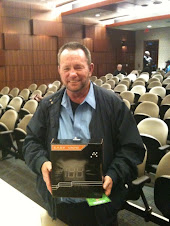Detroit -- Several showdowns over Michigan's medical marijuana law are slated for courtrooms across the state this year as users and law enforcement officials clash over the drug's legality.
Oakland County prosecutors have until Friday to file legal arguments stating why nine people arrested in a medical marijuana raid should be tried on felony drug charges in a Ferndale court.
In a Wayne County courtroom Jan. 21, attorneys for Birmingham and Bloomfield Hills will ask to have a lawsuit against their cities moved to Oakland County, where prosecutors and law enforcement have declared medical marijuana dispensaries illegal.
And a Madison Heights couple, certified under Michigan law to use, possess and grow medical marijuana, are asking the Michigan Supreme Court to dismiss felony drug charges against them. A decision is expected this year.
In another case, federal agents want the state of Michigan to turn over records in a medical marijuana investigation of seven people in the Lansing area.
The U.S. Attorney's Office is asking a judge to order the state to comply with a subpoena. In a court filing last week, prosecutors said the state is resisting because of a privacy provision in Michigan law.
These controversies stem from the Michigan Medical Marijuana Act, passed in 2008 by Michigan voters. The act approved use of the drug for people with qualifying debilitating medical conditions. It allows patients certified by a doctor to use marijuana and caregivers to grow and provide it for up to five patients.
In the Ferndale case, prosecutors are challenging the law, saying the sale and distribution of any marijuana is illegal.
But lawyers for the nine defendants who worked or were co-owners of Clinical Relief, a marijuana dispensary, are fighting the charges and asking a district court judge to dismiss the case.
An undercover narcotics officer admitted he used a phony Michigan medical marijuana identity card to make purchases at the clinic, which was raided by an Oakland County Sheriff's SWAT team in late August.
The officer said he got approval from his superiors at the Sheriff's Office and from the Prosecutor's Office before making the card. The state issues the ID cards to people certified by a physician to use marijuana to treat a medical condition.
Lawyers for the defendants said that because the state considers the cards private medical information, there is no way for a marijuana dispensary to confirm if a card is real or fake.
Judge Joseph Longo has set a Feb. 7 deadline for defense lawyers to file their arguments, court officials said. A decision in the case is expected after March.
Cities Take Action
Across the state, as communities struggle to interpret the law, many have enacted measures that essentially prohibit medical marijuana use, saying the drug remains illegal under federal law.
Earlier this month, the American Civil Liberties Union of Michigan sued three Metro Detroit communities over their bans, claiming they don't have the power to veto state law.
The lawsuit alleges that Livonia, Bloomfield Hills and Birmingham have violated state law with ordinances that effectively banned a Birmingham couple and other patients from legally using medical marijuana.
In an unrelated case, an Oakland County couple certified to use medical marijuana under state law are asking the Michigan Supreme Court to dismiss felony drug charges against them.
Robert Redden and Torey Clark were charged with drug possession after police found 21 marijuana plants in a raid at their Madison Heights home in 2009.
Prosecutors allege the couple possessed more than the allowable number of plants and did not keep the plants in an enclosed, locked facility as required.
Their case received attention in September after a state appellate judge wrote a 30-page opinion urging state lawmakers to take action on the "inartfully drafted" medical marijuana law, which he said clashes with other Michigan laws.
Law's Consequences
Confusion over Michigan's medical marijuana law has led to patients with valid prescriptions losing their jobs or being threatened with eviction from their homes. Many federally subsidized housing complexes think they must follow federal laws or risk losing federal funding.
James McCurtis, spokesman for the Michigan Department of Community Health, which issues the state ID cards, said 83,552 applications had been sent to the state as of Dec. 10. Of those, 45,808 patient registrations were issued. The number of caregivers is not available and is not included in this number, officials said. More than 9,560 applications have been denied.
Matthew Abel, a Detroit-area attorney who specializes in medical marijuana defense cases, does not predict drastic changes to Michigan's medical marijuana law from any court rulings.
It's not certain what lawmakers will do, he said, under the new, Republican-controlled Legislature and Gov.-elect Rick Snyder.
"I think the law is going to stay intact. It's possible but unlikely that the Legislature will come to some agreement to modify the law. They need a three-fourths majority to repeal the law," Abel said. "We are looking to see what changes the new administration is going to bring to this."
Source: Detroit News (MI)
Author: Jennifer Chambers, The Detroit News
Published: January 3, 2011
Copyright: 2011 The Detroit News
Contact: letters@detnews.com
Website: http://www.detnews.com/
URL: http://drugsense.org/url/OxAwCezw
Friday, January 7, 2011
Subscribe to:
Post Comments (Atom)


No comments:
Post a Comment